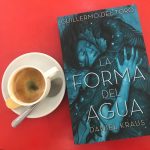Arthur White
IFSA- Butler
Universadad Nacional
Heredia, Costa Rica
Fall 2018
LANGUAGE
For those wondering what life is like in a country where you have the conversational skills of a child, if that, I can assure you that the experience is a humbling one. Starting at the very beginning, people who may not know me that well may not know that I’m a Spanish major. In conflict with this fact, I only started formally learning Spanish in the fall semester of my freshman year of college. The past two years have been trying; between my grammar knowledge from three years of Latin and the conflicting vocabularies of English, Latin, and Spanish, I have felt like I have been running in circles: using Latin words, throwing in the wrong preposition or pronoun, leaving out words entirely.
Things changed almost immediately after arriving in Costa Rica; suddenly I had to be speaking in and listening to Spanish 90% of the day. In the US, I can always leave my Spanish when I leave the classroom or put down whatever book I’m trying to read in Spanish, but I don’t have that crutch here in Heredia. Three days after arriving, I caught myself beginning to “just think, instead of translating each sentence,” as my friend Grace described it when we talked about our experiences so far. I have very clear memories from the past few semesters at H-SC in which I am listening to fluent Hispanic speakers and all I heard was “estoy hablablablablabla,” the words zooming around me like hummingbirds; currently, as I type, my host mom Iliana is in the living room watching the nightly news and I feel as if everything has slowed down to a manageable speed. I can finally hear distinct words when a person is speaking at their normal speed. Do I know exactly what the Ticos are saying, and can I form concise responses and conversation with them every time? No, but this breakthrough is a good start I think.
When it comes down to speaking, the biggest indicator that you, as a speaker, are doing well is that there are no indicators, no furrowed brows or little interjections. While many Ticos in the central valley have some level of English, often most people have little to no experience with speaking English, and in a way, I’m thankful for this barrier. I’ve been told that I’m the kind of person who has never met a stranger in my life. To have a barrier in communication is like having to walk through a wet and muddy field barefoot, which is to say extremely not ideal for several reasons. Because of the distance between myself and the Ticos linguistically, I’ve been pushing myself hard to achieve a level of conversation where I feel comfortable walking around Heredia. Adjusting to a different language is a big challenge for sure but daily conversation has begun to help me familiarize myself with sound of Spanish conversation. But, for now, as I wait for my ears to catch up, I’ll settle on bolstering my vocabulary with a Spanish language edition of The Shape of Water.
Finally, classes start this week and I couldn’t be more excited and equally terrified. So, here’s a closing thought, the tag line for The Shape of Water is “prepare yourself for a connection that goes beyond words.” While my number one focus in Costa Rica is to become more fluent in the language, there are so many experiences that I am gaining already from my time here, outside of my language learning. In a few weeks or so, when I’m at my wit’s end with my Advanced Spanish Syntax course, I’ll come back here to remember to look back on my experience so far, as a whole, breathe, and diagram that last sentence.
I’ll be writing again soon, nos vemos!

After a long day, I enjoy a good book and a cafecito in the mall, Paseo del las Flores, near my homestay.